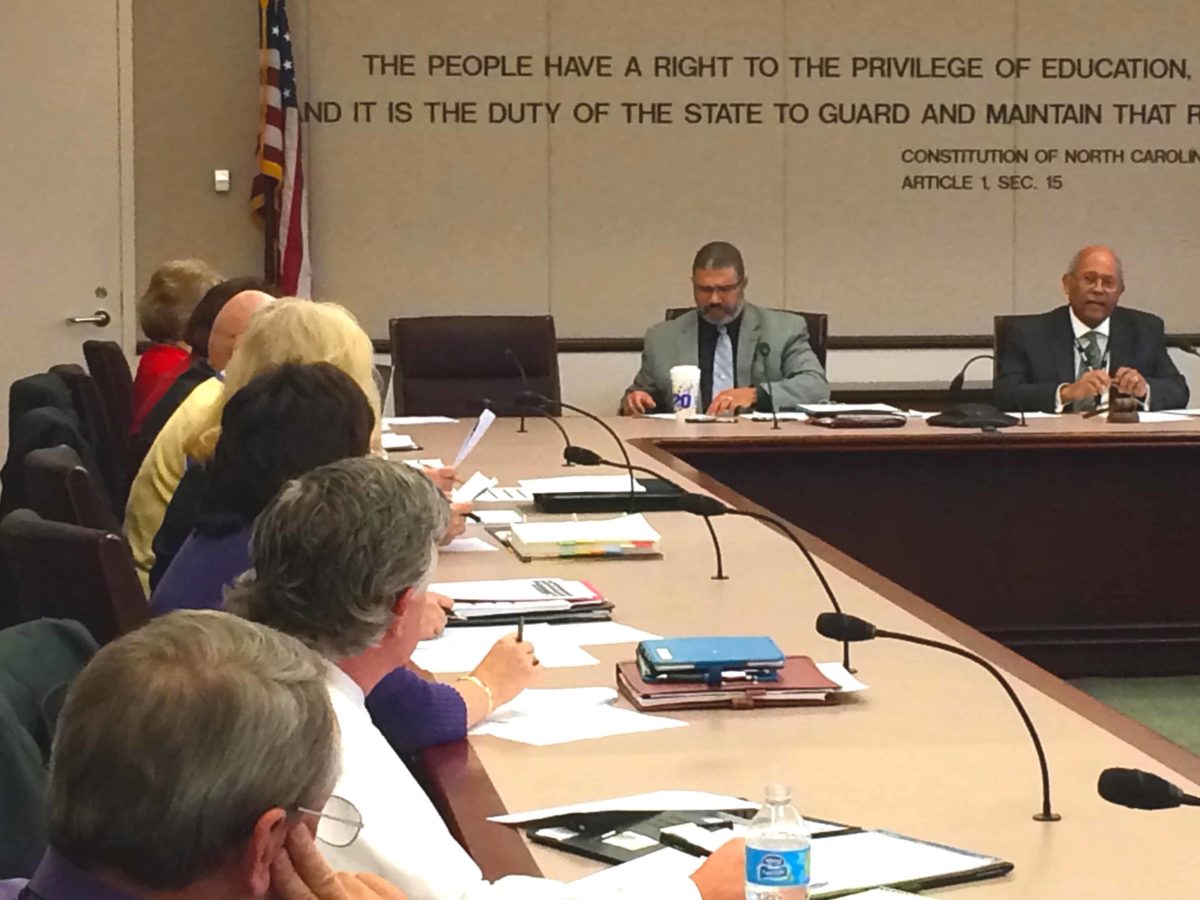
The Driver Education Advisory Committee met today and discussed the possibility that the state won’t fund driver education programs as it has in the past.
Reggie Flythe, DPI’s Driver Education Consultant, updated the committee on what’s happening at the legislature and the challenges the committee faces.
“As you know in the 2014 session law, it says that it is the intent of the General Assembly to no longer support driver education through highway funds,” he said.
He went on to say that many lawmakers are discussing the issue. In particular, he said Republican Rep. Pat Hurley is working on a bill that would find a funding source. Flythe said that last year, driver education got a little under $27 million and added to that about $3 million in local funds and fees. He said Hurley is hoping to get a full $30 million this year so that local funds and fees won’t be necessary.
Flythe said local districts are worried about what’s going to happen when funding for drivers education dries up June 30. He said they’re having trouble planning, and that most districts say they won’t be getting funds from their local commissioners if state funds aren’t available. Many are also discussing delaying classes if that happens.
Committee members who represent various localities and organizations, and other attendees also spoke about the problem during the meeting.
Diana Bader, from the Board of Directors for the NCPTA and a friend of the committee, said the lack of funds presents a grave problem. She said that if driver education funding goes away, some students will wait until they are 18 to get their license and won’t ever get training.
“Every person who walks on our roads and drives on our streets, their lives are in danger,” she said.
Member Phil McGirt of Cumberland County Schools says the issue is a big problem for them.
“Right now, our superintendent and board sees the wording as we shall provide a program of driver education; we don’t have a choice.”
He’s referring to the fact that districts are required to provide driver education by law. To fulfill that requirement, McGirt said Cumberland County needs about $700,000 to $1 million to fund the program, and that officials will need to find cuts somewhere else to make it up. They will also have to charge more for the classes.
Right now, the General Assembly has in place a $65 cap on how much driver education programs can charge parents. That’s a fraction of the real cost. Chairman Connie Sessoms said he’s hearing that the NC School Boards Association will ask the legislature to lift the cap if they don’t restore full funding.
He worries that if that happens and driver education programs start charging more (upwards of $300), then participation will drop off.
“What is that going to do to our registration and are we then serving all our students?,” he asked.
Flythe said he has spoken with representatives from Republican Sen. President Pro Tempore Phil Berger‘s office and discussed different scenarios including no funding and partial funding.


